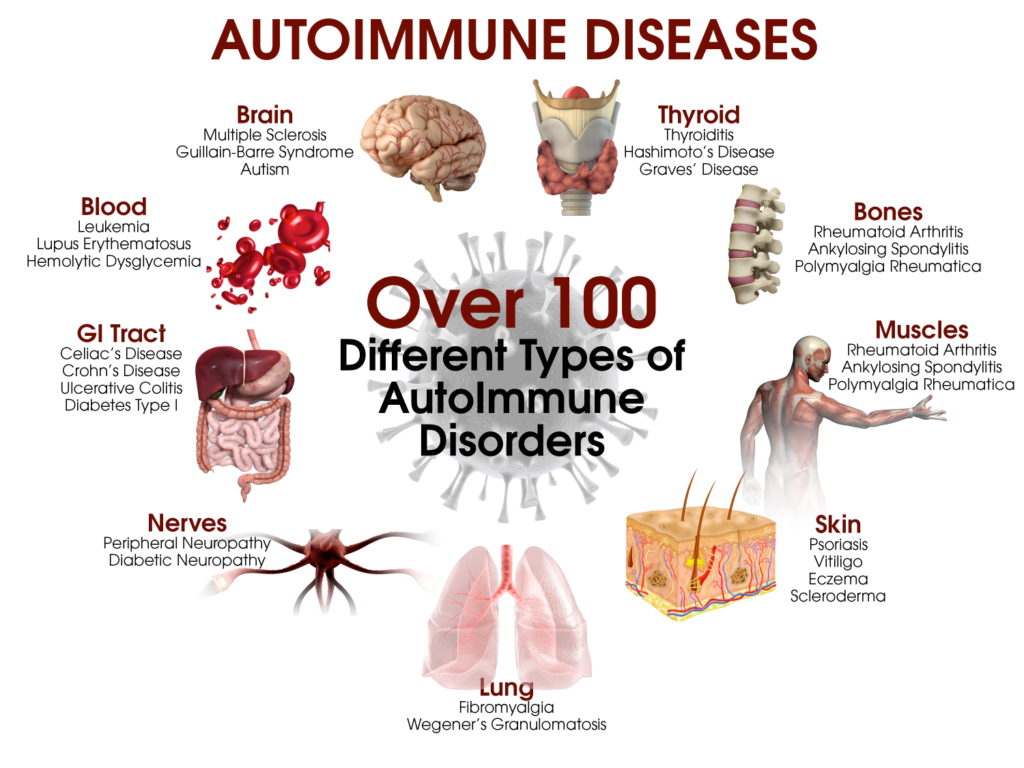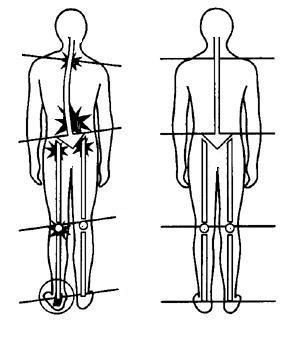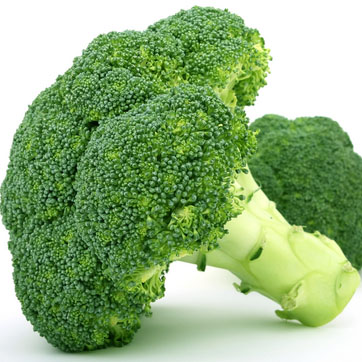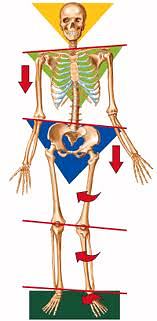



Courtesy of:
John H. Keefe III, D.C.
(918) 663-1111

IN THE NEWS: Peppers to Help Prevent Parkinson's Parkinson's disease, characterized by inflammation, stiff muscles, tremors and progressively more difficulty walking, ranks second among the most common neurodegenerative disease in older people. Recent studies show that some foods can help reduce Parkinson’s symptoms, while other foods may change the factors that cause neurodegeneration and disease progression. Eating Solanaceae, aka nightshade vegetables, such as tomatoes, eggplant and especially peppers, has protective potential; one of the phytochemicals such vegetables contain is nicotine, which appears to be the agent imparting the neuroprotective effects. The amount of dietary nicotine you’d get from eating healthy vegetables is significantly less than what you’d ingest from smoking one cigarette but may be enough to offset your Parkinson’s risk. Eating Solanaceae vegetables, particularly peppers, two to four times per week is recommended for increased neuroprotection.

WELLNESS: Ways to Boost Your Immune System Before it's too Late Don’t mess with your immune system. There are certain things that actively work against our immune systems, such as: drinking alcohol, not sleeping enough, and stressing out too much. So, it’s especially important to do better during cold and flu season. Unfortunately, that may be easier said than done, given that these seasons also coincide with the holiday season, and the bad weather that comes with it. “The weather is crummy, there’s lots of rich foods, and parties, and stress, and alcohol is more abundant this time of year,” says Dr. Roach. Eat well. Eating well can be harder in the wintertime, though. Fresh fruits and veggies may be more expensive or less readily available. If you can’t get fresh fruits and vegetables, Dr. Roach suggests frozen. “Frozen is next best to fresh,” he says. “You don’t want canned because canned fruits and vegetables often have too much sugar or salt and have lost a lot of their nutrients.” But mixing in frozen veggies into soups and stews, or using frozen vitamin-packed berries for smoothies should really help. Exercise. Sure, it’s cold outside, but that doesn’t mean you should give up on your workout routine. Exercise is important for your immune system, Dr. Levine says, because it acts like a natural anti-inflammatory. She’s not saying you need to run a marathon every day, but getting regular exercise — 30 minutes of actual sweating, five times a week — will do wonders for your immune system. Drink enough water. Most Americans are constantly dehydrated, Dr. Levine says, and that directly harms our immune response. Ideally, people should drink about nine glasses of water a day, and even more if they’ve been sweating. Get enough sleep. Sleep is your body’s time to rest and rebuild, Dr. Levine says. So if you’re not getting enough, or your sleep isn’t restful, then you’re not giving your body the chance to take care of itself. “There’s no magic number for most people, but a minimum of eight hours feels good (I don’t like people getting any less than seven hours),” Dr. Levine says. Eat some probiotics.“There’s some data that probiotics can improve general immune health, and that may help decrease the likelihood of getting a cold or influenza,” Dr. Virk says. But again, she’d much rather you get your probiotics from healthy food sources, like yogurt or kefir, than from supplements.

CHIROPRACTIC: The Effects of Chiropractic on the Immune System: A Review of the Literature This paper outlines the many components of the mammalian immune system and the anatomical and physiological connections suggesting that the nervous system plays a role in the modulation of immune response. The few studies attempting to measure the effect of chiropractic or manipulative treatment on the immune system are reviewed. Their results suggest that chiropractic or manipulative treatment may influence T and B lymphocyte numbers, NK cell numbers, antibody levels, phagocytic activity

FUNNY BONE: How can you make sure you never miss your target? Shoot first, and whatever you hit, call it the target.@@If what you've done is stupid but it works, then it really isn't that stupid at all.@@If you think nothing is impossible, try slamming a revolving door.@@Two mysterious people live in my house. "Somebody" and "Nobody." Somebody did it and nobody knows who.@@Coincidence is God's way of remaining anonymous.@@There are a 100
Courtesy of:
John H. Keefe III, D.C.
(918) 663-1111

IN THE NEWS: Why food allergies are on the rise: Hyper-cleanliness may be making kids' immune systems weaker, doctors warn. The number of children with allergies has risen 50 percent since 1997. Allergies are a misguided immune system response to foods and other harmless substances. In recent years, horrifying stories of children suddenly struck dead by allergies have increasingly made headlines - all triggered by ingredients hidden in such innocuous items as sandwiches and cookies. Scientists are investigating several hypotheses as to why and how they

WELLNESS: Immune system vs. gut bacteria: How vitamin A 'keeps the peace' New findings about the role of vitamin A in mediating the relationship between gut bacteria and the immune system may prove "critical" for devising new therapies for autoimmune conditions, such as Crohn's disease, ulcerative colitis, and other inflammatory diseases that affect the intestine. Carrots, butter, and cheese are some of the richest sources of vitamin A. The gut bacteria are known to play a crucial role in keeping us healthy. Research has shown that the trillions of friendly microorganisms hosted by our guts can keep us lean, young, and healthy — both in body and mind. But how do gut bacteria do this? One answer involves the immune system. Various studies have been slowly unraveling the complex relationship between gut bacteria and immunity. They suggest that the interactions between the host's gut and the bacteria that colonize our intestines help control how our body responds to illness. healthy — both in body and mind. But how do gut bacteria do this? New research may have found an answer: vitamin A. A team of scientists, led by Shipra Vaishnava, an assistant professor of molecular microbiology and immunology at Brown University in Providence, RI, found that moderate levels of vitamin A in the intestine prevent the immune system from becoming overactive. "The role of vitamin A in inflammation is context-dependent and is very hard to tease apart," the researcher adds. In the future, the scientists plan to examine why Rdh7 (component of vitamin A) suppression is vital for the immune response, and how bacteria control Rdh7 gene expression. “A change in vitamin A status and vitamin A metabolic genes coincides with inflammatory bowel diseases, but we don't know if this promotes inflammation or not. We hope that adding our finding — that bacteria can regulate how vitamin A is being metabolized in the intestine or stored — could help clarify why the field is seeing what it is seeing." Note: the dry air of wintertime depletes the body of vitamin A.

CONDITION OF THE WEEK: SPINAL STRESS we hear a lot about stress, job stress, financial stress but you might not hear much about spinal stress. When we talk about spinal stress we are not talking about pain. It might come across as stress you feel in your neck or back or in your muscles in general. This type of stress happens by irritation on spinal nerves due to misalignments. These misalignments might not cause back pain yet it adds to your overall sense of stress. Slight misalignments of the vertebrae in your neck and back can cause constant

FUNNY BONE: I recently read a list of “100 Things You Must Do Before You Die” and was shocked that “Yell for help” wasn’t one of them.@@What’s worse than finding a worm in your apple? Finding only half of it.@@China’s flag gets 5 stars, but who rates themselves 5 stars? Lack of modesty is always a big red flag.@@Ever since it started raining, my wife hasn’t stopped sadly looking through the window. If it gets really worse, I’ll have to let her in.@@My
Week of: Monday Jan. 7, 2019
Courtesy of:
John H. Keefe III, D.C.
(918) 663-1111

IN THE NEWS: Is Vaping Bad for You? Well, for Starters, Your E-Cig Vapors Might Contain Lead New study findings show that the vapors from a variety of devices contain potentially toxic levels of metals, including lead. The study comes on the heels of research out last year that detected metals in e-liquids used in the devices. Johns Hopkins Bloomberg School of Public Health researchers recruited 56 daily e-cigarette users and studied the vapors they give off. "We devised a relatively simple system that collects the aerosol, what people call the vapors. We collected it almost as soon as it came out of the e-cigarette,” study author Ana María Rule,

WELLNESS: Immune-Boosting Foods to Eat If You Don't Want to Get Sick This Winter 1. Turmeric According to Los Angeles–based holistic nutritionist Elissa Goodman, turmeric is one of the richest sources of antioxidants and is therefore chock-full of the inflammation-fighting goodness our vulnerable immune systems needs. "Curcumin, the active ingredient in turmeric, is antiviral, antifungal, and can help keep the immune system strong," Goodman shares. "Just make sure to mix turmeric with black pepper, which increases absorption. I like to juice turmeric in addition to adding it to curries, sauces, soups, and coffee-free lattes." 2. Pumpkin Seeds Go Raw Organic Sprouted Pumpkin Seeds We already knew nuts and seeds are one of the best foods for our daily quota of plant-based protein and fats, but it turns out seeds (pumpkin, in particular) are filled with zinc—one of the most important minerals for staving off sniffles and sluggishness. "Zinc is an essential mineral for the immune system," Franceschini confirms. "An immune system without zinc is like an army without soldiers. Enjoy a piece of dark chocolate in the afternoon, toast up some chickpeas for a salad, or snack on a handful of pumpkin seeds to help to store optimal levels of zinc in the body." 3. Broccoli Whether you prefer broccoli (or any cruciferous vegetable, for that matter) steamed, roasted, or riced, Farah Fahad, MS, RD, creator of The Farah Effect, says it's one of the best foods for supporting immune health. In reference to a study published in the Journal of Allergy and Clinical Immunology, Fahad says sulforaphane, a chemical found in broccoli, might activate antioxidants and enzymes in specific immune cells which fight the free radicals that lead to cell damage and disease. 4. Elderberry—a antioxidant powerhouse with a surplus of immune-boosting perks. "Elderberry has long been used as an herbal remedy for colds, flu, and sinus infections," she explains. "Preliminary studies suggest that elderberry extract may offer virus-fighting, immune-stimulating, and anti-inflammatory effects, therefore I recommend addingelderberry syrup to your oatmeal, coconut yogurt, or taking a swallow-full straight. (Note: Pay heed if your elderberry supplement recommends dilution. Many syrups and juices are super concentrated!) 5. Fermented Foods Remember what we said about gut health being paramount for optimum immunity? Yep, it's time to prick up your ears. "Keeping your gut bacteria healthy is one of the most important things you can do to stay healthy since roughly 70% to 80% of the cells making up your immune system are in your gut," Goodman shares. Source-wise, she recommends snapping up fermented foods like coconut kefir, tempeh, miso, sauerkraut, kimchi, or kombucha. "If you're in L.A., I love getting the tempeh Reuben in a collard wrap from Real Food Daily. They add sauerkraut so it’s two probiotics in one meal. I also frequently sauté tempeh in coconut oil, and kimchi fried rice is another favorite," says Goodman.

CHIROPRACTIC: Chiropractic and Leg Length Leg length plays and important role in posture. When there is a difference in leg length, the pelvis cannot maintain a level position, and because the spine’s base is the pelvis, it cannot stay straight if there is a leg length discrepancy. Doctors of all disciplines realize the importance of leg length, especially orthopedic surgeons as they consider a hip or knee replacement! There are many causes of leg length issues, and some include a genetic predisposition (inherited) or trauma during bone growth years. From a treatment standpoint, a heel lift (with or without arch supports) can be placed into the shoe on the short leg side. Unfortunately, there is not a 1 to 1 mm correction of the leg length deficiency with heel lifts. In adults, it has been reported that about a 66% correction occurs, which means a 10 mm lift would result in around a 6.6mm leg length deficiency correction. Note: if you have an anatomical short leg you need to wear a lift for the rest of your life or otherwise have your shoe on the short leg side built up, structural balance affects your health.

FUNNY BONE: The Thoughest Questions Woman Ask To Men 1. What are you thinking? The proper answer to this question, of course is, "I'm sorry if I've been pensive, dear. I was just reflecting on what a warm, wonderful, caring, thoughtful, intelligent, beautiful woman you are and what a lucky guy I am to have met you." Obviously, this statement bears no resemblance whatsoever to what the guy was really thinking at the time, which was most likely one of five things: Baseball! Football! How fat you are. How much prettier she is than you. How he would spend the insurance money if you died. 2. Do you love me? The correct answer to this question is, "Yes." For those guys who feel the need to be more elaborate, you may answer, "Yes, dear". Wrong answers include: I suppose so. Would it make you feel better if I said yes. That depends on what you mean by "love". Does it matter? Who, me? 3. Do I look fat? The correct male response to this question is to confidently and emphatically state, "No, of course not." and then quickly leave the room. Wrong answers include: I wouldn't call you fat, but I wouldn't call you thin either. Compared to what? A little extra weight looks good on you. I've seen fatter. Could you repeat the question? I was thinking about your insurance policy. 4. Do you think she's prettier than me? The "she" in the question could be an ex-girlfriend, a passer-by you were starring at so hard that you almost cause a traffic accident or an actress in a movie you just saw. In any case, the correct response is, "No, you are much prettier." Wrong answers include: Not prettier, just pretty in a different way. I don't know how one goes about rating such things. Yes, but I bet you have a better personality. Only in the sense that she's younger and thinner. Could you repeat the question? I was thinking about your insurance policy.
Web sites: keefeclinic.com-faceebook/keefeclinic.com